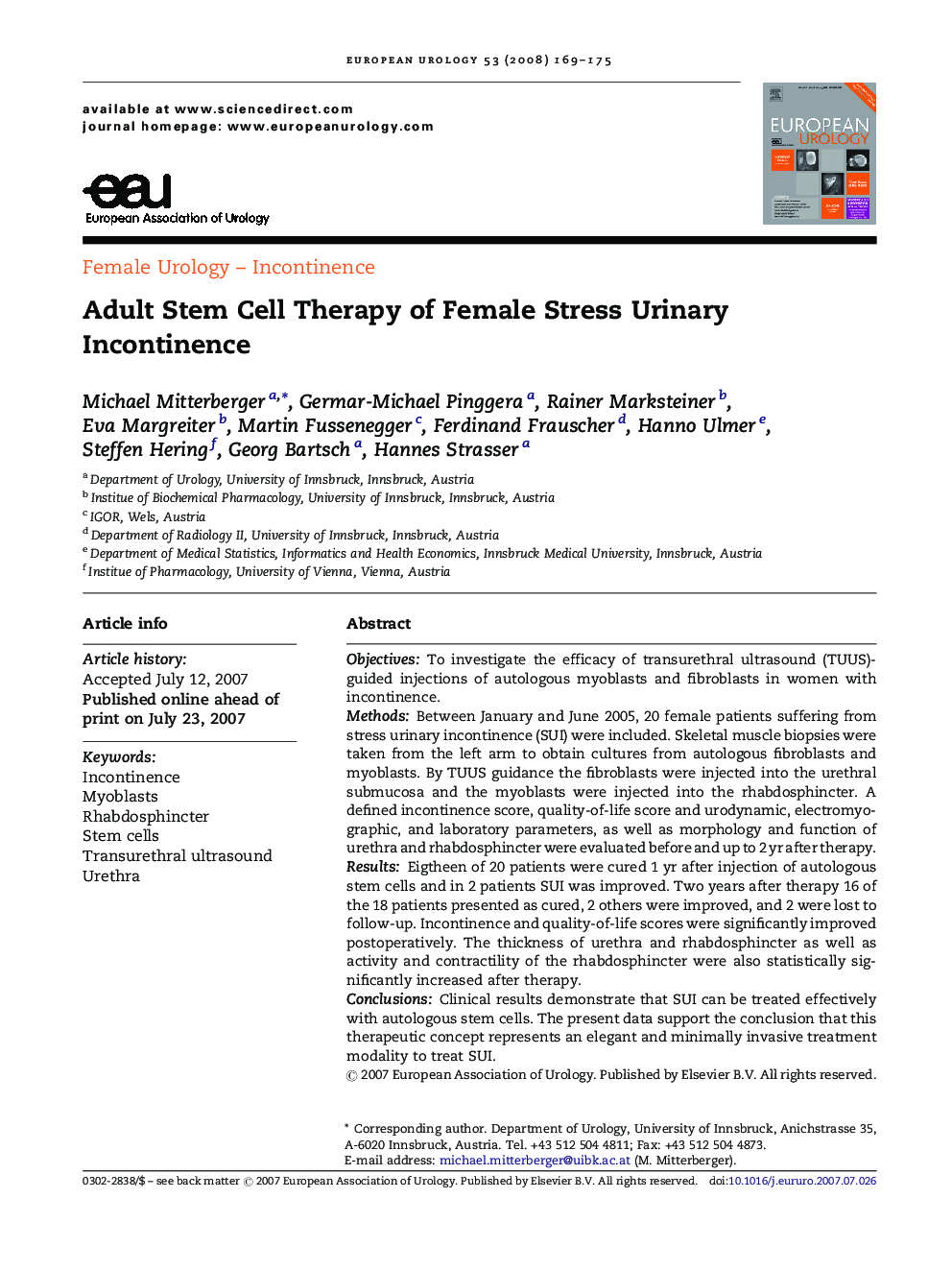| Article ID | Journal | Published Year | Pages | File Type |
|---|---|---|---|---|
| 3927706 | European Urology | 2008 | 7 Pages |
ObjectivesTo investigate the efficacy of transurethral ultrasound (TUUS)-guided injections of autologous myoblasts and fibroblasts in women with incontinence.MethodsBetween January and June 2005, 20 female patients suffering from stress urinary incontinence (SUI) were included. Skeletal muscle biopsies were taken from the left arm to obtain cultures from autologous fibroblasts and myoblasts. By TUUS guidance the fibroblasts were injected into the urethral submucosa and the myoblasts were injected into the rhabdosphincter. A defined incontinence score, quality-of-life score and urodynamic, electromyographic, and laboratory parameters, as well as morphology and function of urethra and rhabdosphincter were evaluated before and up to 2 yr after therapy.ResultsEigtheen of 20 patients were cured 1 yr after injection of autologous stem cells and in 2 patients SUI was improved. Two years after therapy 16 of the 18 patients presented as cured, 2 others were improved, and 2 were lost to follow-up. Incontinence and quality-of-life scores were significantly improved postoperatively. The thickness of urethra and rhabdosphincter as well as activity and contractility of the rhabdosphincter were also statistically significantly increased after therapy.ConclusionsClinical results demonstrate that SUI can be treated effectively with autologous stem cells. The present data support the conclusion that this therapeutic concept represents an elegant and minimally invasive treatment modality to treat SUI.
